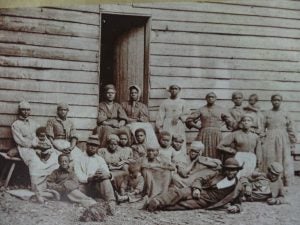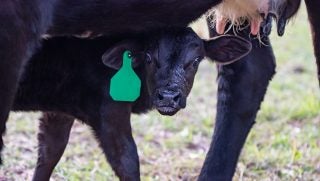Agriculture is the foundation of life. Agriculture in America is the foundation of the country’s economy. However, its history is tainted with oppression and trauma.
I often find it interesting when people question why everyone is still talking about “race.” The argument often states that we have to avoid speaking so divisively about the topic if we want to live free of racism. People want everything to “stop being about race” and charge people to “not see color.”
The problem with this argument is that it attempts to erase the experiences of racially marginalized groups, including Black people, indigenous people, and people of color (also known as BIPOCs). To heal the divide this country is experiencing, we must be honest about the history of America, and that history includes the history of American agriculture.

I can not attempt to wrap the history of racism in agriculture into a 500-word article. It is impossible as it spans several centuries and so many communities. However, I hope to create a space for you to begin to think about how we can collectively walk towards healing together.
So, let’s start from the beginning.
Slavery in agriculture predates America. Agriculture was entangled with and relied heavily upon the enslavement of Africans, so much so that, what today would be billions of dollars was spent in a war to defend people’s rights to own other people (i.e., slaves).
I will pause here and recall that the image of American slavery must be displayed accurately. Enslaved Africans were treated as subhuman. The acts of violence by enslavers were crimes against humanity. Enslaved Africans were treated brutally beyond words. Yet, we are often taught that slavery wasn’t all bad and not all slaveholders were terrible. I remember only spending a few minutes of class talking about the ills of American slavery as if it were a blip in history. Four hundred years of violence against an entire group of people demands more than a few minutes of discussion.
Furthermore, this is one story of only one racially marginalized group of people. As I said, it would take pages to tell the full story of injustice in American agriculture. It would take pages to talk about unjust occupation and seizure of indigenous lands, to speak on the discrimination and terror Black farmers in the South continue to face, and to describe how even today, in one of the wealthiest nations in the world, children still go to bed hungry.

I think about this a lot as I navigate my career in agriculture. As the Biden administration seeks to correct some of these historic injustices, I see many White farmers react as if historic injustice never existed. I am working in a field that was never meant for me to survive in, much less thrive in. Yet, I walk into rooms daily and speak about my passion for agriculture, food, and nutrition. I understand the importance of agriculture while never forgetting the pain it has and still inflicts on communities. Because of that, I would not be doing my due diligence if I were not to come to these spaces compelled to “do good and seek justice.”
I am hopeful about the future of American agriculture. I am grateful for the opportunities the industry affords us daily and the community I have gained along the way. With love comes the desire to critique. It is not until we face these realities that we can truly begin to heal the divide in America. The erasure of history and oppression will not accomplish this. When we face our truths head-on, sit through the discomfort and pain together, and listen openly and compassionately to the sufferings of others, we can truly become one nation.
Irene Lewis is a recent Master’s student in the John Glenn College of Public Affairs at The Ohio State University with a major in public administration with a focus on public policy and management. She is a south Louisiana native and food justice and access advocate.



